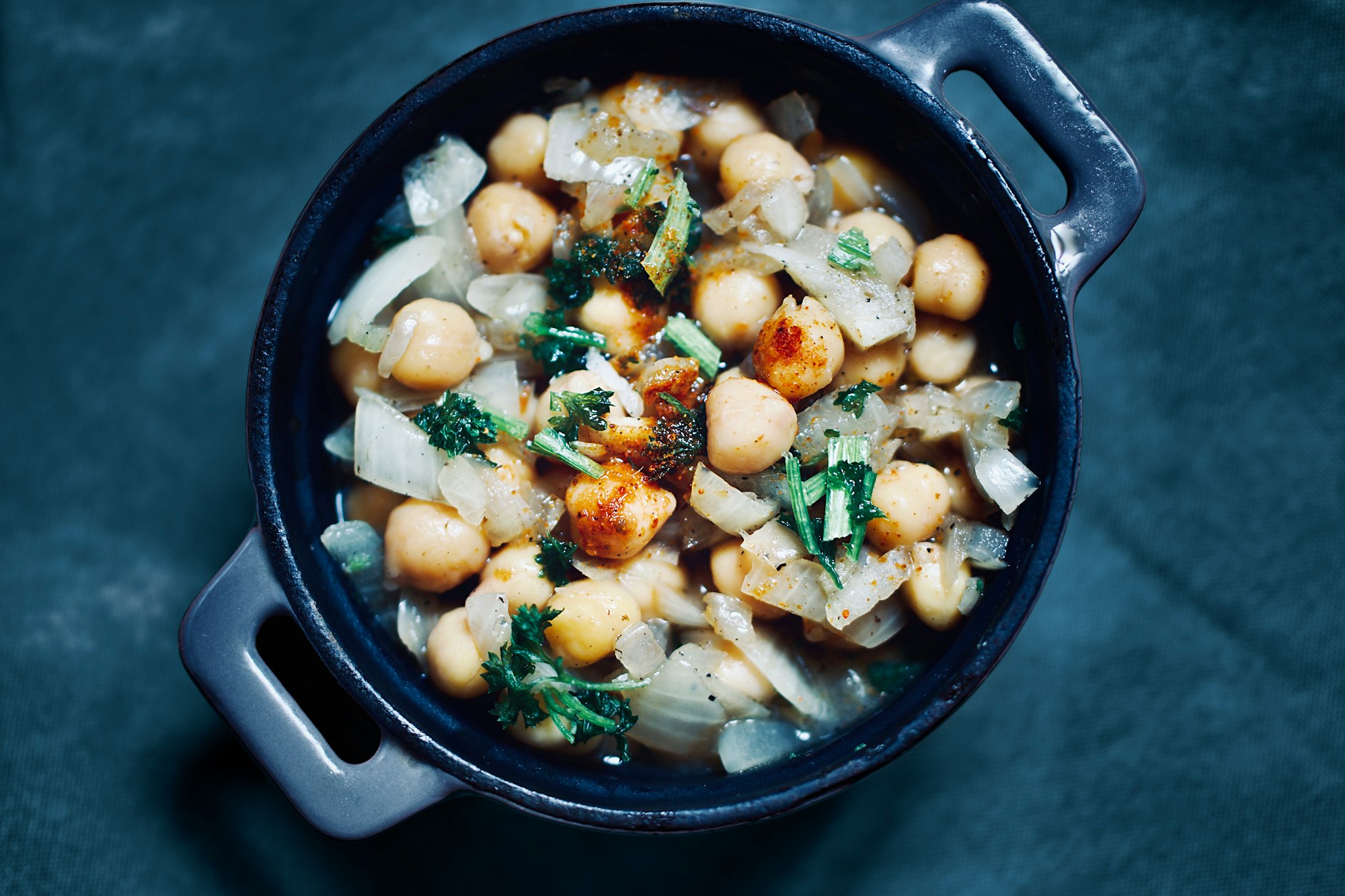Mediterranean Diet, Plan and Guide

Fruits, vegetables, whole grains, and heart-healthy fats are just a few delectable foods in the Mediterranean diet. As well as supporting brain function, promoting heart health, regulating blood sugar levels, and more, it may also help support brain function. The Mediterranean diet has no set regulations, but you can follow any general recommendations to incorporate its ideas into your daily activities. This article examines the Mediterranean diet, its principles, and potential health advantages.
What is Mediterranean diet - 101?
The Mediterranean diet, based on the eating customs of countries along the Mediterranean Sea like Italy, Greece, Spain, and France, is a dietary approach focused on the inclusion of fruits, vegetables, whole grains, legumes, nuts, seeds, and olive oil. It advises moderate consumption of fish and poultry, and limits red meat and sweets.
This diet has been linked to a plethora of health advantages, such as a decreased risk of heart disease, stroke, type 2 diabetes, and specific types of cancer. Additionally, it aids in weight control, enhances cognitive abilities, and promotes longevity. Other perks include elevated mood, boosted energy levels, improved gut health, reduced inflammation, and increased bone strength.
The Mediterranean diet's adaptability and sustainability cater to individual preferences and requirements, making it an attractive choice for those aiming to boost their overall health and wellness.
Experts frequently suggest the Mediterranean diet because of its well-known health advantages, especially for heart health. According to studies, people who followed the Mediterranean diet lost more weight than those who followed low-fat diets. A study also discovered that women who ate in a Mediterranean-style way were 46% more likely to age healthily.
How does the Mediterranean diet work?
The Mediterranean diet functions by prioritizing the intake of highly nutritious, minimally processed, and antioxidant-abundant foods. These food choices contribute to overall wellness and protect against chronic illnesses. Here's a breakdown of how the Mediterranean diet operates:
- Cardiovascular well-being: This diet features an ample supply of monounsaturated fats, predominantly from olive oil, which have been proven to bolster heart health by decreasing LDL (harmful) cholesterol levels and minimizing inflammation. Consuming fish, loaded with omega-3 fatty acids, also supports heart health.
- Proportionate macronutrients: The Mediterranean diet ensures a proper equilibrium of carbohydrates, proteins, and fats. It endorses the consumption of whole grains, legumes, fruits, and veggies, which contain an abundance of fiber, vitamins, and minerals. Protein is derived from lean sources, including fish, poultry, and legumes, which have lower saturated fat levels compared to red meat.
- Antioxidants and anti-inflammatory attributes: This diet is abundant in fruits and vegetables, rich sources of antioxidants like vitamins C and E, along with other phytonutrients that safeguard the body against oxidative stress and inflammation. These compounds help decrease the risk of chronic diseases, such as heart disease, cancer, and neurodegenerative conditions.
- Minimal processed and refined foods: The Mediterranean diet restricts processed and refined food consumption, which typically have high levels of unhealthy fats, added sugars, and sodium. By lessening the intake of these foods, the diet encourages healthier weight management, reduces type 2 diabetes risk, and fosters overall health.
- Moderate dairy and alcohol consumption: The diet incorporates modest amounts of dairy products, mainly yogurt and cheese, which supply essential nutrients like calcium and protein. Red wine, consumed in moderation, may contribute to heart health due to its polyphenol content.
- Embracing a wholesome lifestyle: The Mediterranean diet transcends food selections and emphasizes adopting a healthy way of life. Regular physical activity, sufficient sleep, and communal meals with family and friends are all integral components of the diet, contributing to overall well-being.
In essence, the Mediterranean diet operates by emphasizing nutrient-dense, minimally processed food intake that supports overall health and helps prevent chronic diseases. The diet's focus on heart-healthy fats, antioxidants, balanced macronutrients, and a wholesome lifestyle renders it an effective approach to maintaining good health and warding off disease.

What are the benefits of the Mediterranean diet?
The Mediterranean diet delivers a variety of potential health perks, thanks to its focus on whole, nutrient-packed foods and beneficial fats. Let's delve into each advantage:
- Diminished likelihood of heart disease: This diet features wholesome fats, like monounsaturated fats from olive oil and omega-3 fatty acids from fish, which have been proven to enhance heart health by decreasing LDL (bad) cholesterol and minimizing inflammation.
- Lower risk of stroke: The high consumption of fruits, veggies, and whole grains provides essential vitamins, minerals, and fiber, which can help maintain healthy blood pressure and blood sugar levels, reducing stroke risk.
- Decreased chance of type 2 diabetes: The Mediterranean diet fosters healthy blood sugar regulation by emphasizing complex carbs from whole grains and legumes, healthy fats, and fiber-rich foods, which together can boost insulin sensitivity and lower the risk of developing type 2 diabetes.
- Lessened risk of certain cancers: The diet's accent on antioxidant-dense fruits, vegetables, and whole grains, as well as healthy fats, can help protect against cellular damage that may lead to specific cancers, like breast and colorectal cancer.
- Weight loss and control: The Mediterranean diet is abundant in fiber, which can aid with satiety and weight management. Furthermore, it encourages moderate portion sizes and mindful eating, which can help prevent overeating and promote long-lasting weight maintenance.
- Enhanced cognitive function: Nutrients and antioxidants present in the Mediterranean diet, such as omega-3 fatty acids and polyphenols, have been connected to better cognitive function, including improved memory and reduced risk of age-related cognitive decline.
- Longer lifespan: The blend of a nutrient-dense diet, decreased risk of chronic illnesses, and potential improvements in overall well-being contribute to the Mediterranean diet's association with increased longevity.
- Elevated mood: The diet's focus on omega-3 fatty acids, complex carbohydrates, and nutrient-rich foods may contribute to improved mental health and mood regulation.
- Boosted energy levels: The Mediterranean diet offers a good balance of macronutrients, including high-quality carbohydrates, healthy fats, and lean proteins, which can help maintain steady energy levels all day long.
- Better gut health: The high fiber content from whole grains, fruits, and vegetables supports a healthy digestive system and promotes the growth of beneficial gut bacteria.
- Reduced inflammation: Antioxidant-rich foods, such as fruits, vegetables, nuts, and olive oil, can help decrease inflammation in the body, which is associated with various chronic diseases.
- Stronger bones and lower risk of osteoporosis: The diet's emphasis on nutrient-rich foods, like leafy greens and dairy products, provides essential nutrients like calcium and vitamin D, which contribute to bone health and may help prevent osteoporosis.
The Mediterranean diet is a well-rounded, sustainable eating pattern that can have numerous positive effects on overall health and well-being.
How to follow and what to eat?
To adopt the Mediterranean diet, concentrate on consuming whole, nutrient-laden foods and embracing specific dietary habits. Here's a list of pointers to get you going:
- Pile on fruits and veggies: Strive for at least five servings daily, incorporating a variety of hues and types to ensure a diverse nutrient profile.
- Pick whole grains: Opt for whole grains, such as brown rice, quinoa, whole wheat pasta, and whole grain bread, over refined grains.
- Embrace legumes: Add beans, lentils, and chickpeas to your meals a minimum of twice a week, as they're fantastic sources of plant-based protein and fiber.
- Savor fish and seafood: Consume fish like salmon, mackerel, and sardines at least twice weekly. These are packed with heart-healthy omega-3 fatty acids.
- Curb red meat intake: Reduce red meat and choose lean meats like poultry and plant-based protein sources such as legumes and tofu.
- Make olive oil your go-to fat: Swap other cooking oils and fats for olive oil, which is abundant in monounsaturated fats and antioxidants. Use it for cooking, dressings, and marinades.
- Incorporate nuts and seeds: Snack on a handful of nuts, including almonds, walnuts, or pistachios, and mix seeds like chia and flaxseeds into your meals for added healthy fats and fiber.
- Choose low-fat dairy: Consume moderate amounts of low-fat dairy, like yogurt and cheese, for calcium and protein.
- Minimize added sugars: Keep sweets and sugary beverages to a minimum, focusing on savoring naturally sweet foods like fruits.
- Sip red wine in moderation (optional): If you drink alcohol, consider relishing a glass of red wine with meals containing antioxidants like resveratrol. Stick to one glass per day for women and up to two glasses daily for men.
- Engage in regular physical activity: Incorporate consistent physical activity into your routine to support a healthy lifestyle.
- Relish meals with loved ones: Make mealtime a social event, appreciating food and conversation with friends and family.
By adhering to these guidelines and focusing on whole, nutrient-rich foods, you can successfully adopt the Mediterranean diet and experience its numerous health advantages.
What to avoid while on Mediterranean Diet?
When adhering to the Mediterranean diet, it's crucial to steer clear of specific food items and categories. Here's a rundown of what to avoid for a successful Mediterranean eating experience:
- Sidestep refined grains: Bypass white bread, white rice, and regular pasta, opting instead for whole grain alternatives to maintain nutrient density.
- Dodge processed foods: Evade prepackaged meals, snacks, and convenience foods, which often contain added sugars, unhealthy fats, and artificial ingredients.
- Bypass unhealthy fats: Skirt trans fats and limit saturated fats found in items like butter, margarine, and fatty cuts of meat, opting for healthier fat sources like olive oil, nuts, and seeds.
- Limit sugary treats: Minimize the consumption of candies, pastries, and other sweets, focusing on natural sweetness from fruits to satisfy cravings.
- Curb processed meats: Circumvent processed meats like sausages, hot dogs, and deli meats, which may contain unhealthy additives and high levels of sodium.
- Restrict sugary beverages: Refrain from indulging in soda, sweetened coffee drinks, and other sugar-laden beverages, opting for water, herbal tea, or unsweetened drinks.
- Skim on high-fat dairy: Sidestep full-fat dairy products, such as whole milk, full-fat cheese, and cream, and choose low-fat or non-fat dairy options instead.
- Dodge deep-fried foods: Evade deep-fried items like french fries and fried chicken, as they contain unhealthy fats and may contribute to inflammation.
- Minimize added salt: Limit your intake of added salt in cooking and at the table, opting for natural herbs and spices to flavor your meals instead.
By keeping these restrictions in mind and focusing on whole, nutrient-dense foods, you'll be on track to successfully follow the Mediterranean diet and reap its numerous health benefits.
Sample Diet Plan
Breakfast
- Greek yogurt topped with mixed berries, a drizzle of honey, and a sprinkle of chopped walnuts
- Whole-grain toast with avocado and cherry tomatoes
Mid-morning Snack:
- A small handful of almonds or mixed nuts
Lunch:
- Grilled vegetable and chickpea salad with lemon-tahini dressing
- Whole grain pita bread
Afternoon Snack:
- Baby carrots and cucumber slices with hummus
Dinner:
- Baked lemon-herb salmon with a side of quinoa
- Steamed broccoli and roasted bell peppers drizzled with olive oil
Dessert (optional):
- Fresh fruit salad with a dollop of Greek yogurt and a drizzle of honey
Beverages:
- Water, herbal tea, or black coffee throughout the day
Optional:
- a glass of red wine with dinner
Remember, the Mediterranean diet is flexible and can be adapted to individual preferences. Use this sample meal plan as a starting point and feel free to make substitutions based on your tastes and dietary needs.
Don't forget to include regular physical activity and enjoy your meals with family and friends for a complete Mediterranean lifestyle experience.
Mediterranean inspired recipe
Chickpea and Vegetable Stew
Ingredients:
2 tablespoons olive oil
1 medium onion, chopped
2 cloves garlic, minced
1 red bell pepper, chopped
1 zucchini, chopped
1 medium eggplant, chopped
2 cups chopped tomatoes (canned or fresh)
1 can (15 oz) chickpeas, drained and rinsed
1 teaspoon ground cumin
1 teaspoon smoked paprika
1/2 teaspoon ground coriander
1/2 teaspoon ground turmeric
Salt and pepper, to taste
1/4 cup fresh parsley or cilantro, chopped
2 cups vegetable broth or water
Instructions:
- Heat olive oil in a large pot over medium heat. Add the chopped onion and cook for 5 minutes, or until softened.
- Add the minced garlic and cook for another minute, stirring constantly to avoid burning.
- Add the chopped bell pepper, zucchini, and eggplant to the pot. Cook for 5-7 minutes, stirring occasionally, until the vegetables start to soften.
- Stir in the chopped tomatoes, chickpeas, cumin, smoked paprika, ground coriander, turmeric, salt, and pepper. Cook for another 2-3 minutes to allow the flavors to meld.
- Add the vegetable broth or water to the pot, stirring to combine. Bring the stew to a boil, then reduce the heat to low and let it simmer for 20-25 minutes, or until the vegetables are tender and the flavors have developed.
- Taste and adjust the seasoning as needed. Stir in the chopped parsley or cilantro just before serving.
Photo by martin becker / Unsplash
Serve the stew warm with a side of whole grain couscous, brown rice, or crusty whole grain bread. This recipe is versatile, and you can feel free to add other vegetables or spices according to your preferences.





